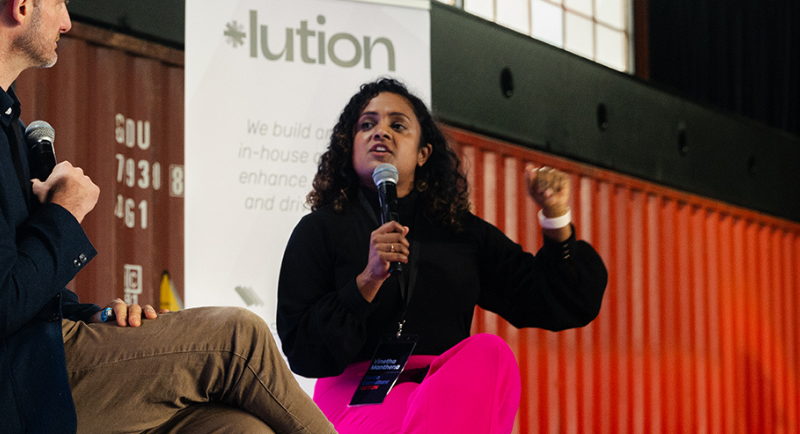“Is it easier to work in-house versus working in a media agency? I would say it’s just very, very different work,” Vinetha Manthena told Mediaweek at the recent In-House Agency Council summit at The Timber Yard in Melbourne.
After a day of discussion, insights, collaboration and networking, Mediaweek caught up with Manthena, consultant for IHAC and former head of media for Commonwealth Bank of Australia and Optus, as she debunked misconceptions about in-house agencies.
“Because you’re wearing the brand on your sleeve, you’re driven to make that happen”
In addition to different work, Manthena highlighted that in an in-house agency, people work very close to the brand and experience different pressures.
“In an in-house agency, you’re expected to move pretty quickly versus an external agency because you’re so close to the brand.”
Another misconception Manthena noted is innovation. She said that sometimes people can get “caught up in the vortex of being about your brand solely” and “almost become numb to what’s happening outside of the in-housing sort of world.”
To prevent this, she highlighted the importance of in-house agency leaders encouraging their teams to attend forums, programmatic summits, and industry events to “widen their horizon” when it comes to keeping team members abreast of new innovations.
“The more they’re exposed to what’s going on in the industry, the better that I feel they can do their jobs, which is pretty critical.”
“I always say working in an in-house team, you’re closer to the P&L than an agency will be. So, you get the passion, the fast-moving pace of it, and if something needs to happen, it needs to happen.”
Manthena said that while SLAs (service level agreements) like creative turnaround times and setting up campaigns need to be respected, “sometimes you get a code red, and it’s a ‘make it happen campaign'”.
“Because you’re wearing the brand on your sleeve, you’re driven to make that happen. You see many benefits from that internally and on the client side. In an agency world, because you’re a little bit more removed from the actual brand, you don’t see the fruits of your labour.”
“Be clear about what you want to achieve”
Manthena also said an in-house has benefits in knowing the type of work and quality of work and seeing it through to the end product.
She noted that in-housing capacities differ based on a brand’s shapes and forms: “It may not always be media or creative; it may be certain parts of that.”
For brands considering going in-house or having an in-house function, Manthena said the important thing to consider is “being clear about what you want to achieve.
“What is it you want your organisation to focus on? What things can you outsource more cost-effectively and efficiently in terms of productivity to an external party versus what you’re willing to take on in-house?”
“Because often, if you need a scapegoat, you could call upon the agency. An in-house agency always turns the eyes back on yourself if you’re going through your creative media processes and how to improve that.”
“One size does not fit all”
Looking back on her time leading media departments for the Commonwealth Bank and Optus, Manthena said that she learned that because every organisation is different, each in-house agency will be bespoke and have unique business requirements that will continue to evolve.
“I’d advise other brands looking in-house to consider some of the strategies that work for their business rather than copying someone else’s model because one size does not fit all.
“Through the IHAC community, there are lots of brands that have different types of in-housing. I think that’s great because you’ve got to build a bespoke solution for you, like your tech stack and your MarTech stack.”
See also: ‘Real thought leadership’: A day of insights and ideas from the 2024 In-House Agency Council summit
–
Top image: Vinetha Manthena
